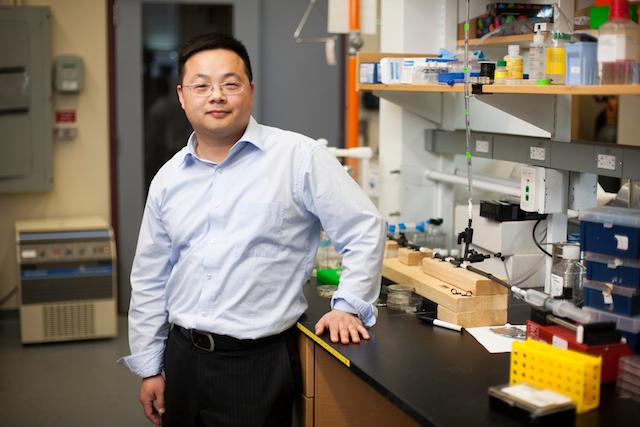Aiding mRNA vaccine development

As COVID-19 continues to spread across the world, scientists are developing vaccine candidates on platforms such as DNA, RNA, protein, viral vector, and inactivated virus. Research suggests that mRNA is potentially a powerful platform for a COVID-19 vaccine due to the format’s precise, adaptable antigen design and its ability to induce both humoral and cell-mediated immunity.
Humoral immunity is mediated by the secretion of antibodies within body fluids. Cell-mediated immunity releases cytokines in response to antigen and activates antigen-specific cytotoxic T cells to kill infected target cells. An effective COVID-19 vaccine will likely require the induction of both immunities, and mRNA vaccines have the potential to confer these immunities by inducing neutralizing antibodies (Ab) and cytotoxic CD8 T cells (CTL).
However, notable challenges remain in developing an mRNA vaccine that provides protection against COVID-19. Associate Professor Qiaobing Xu at Tufts University and Professor Jianzhu Chen from the Koch Institute for Integrative Cancer Research at Massachusetts Institute of Technology have received funding from Massachusetts Consortium on Pathogen Readiness (MassCPR) Award to address two of those challenges.
First, dendritic cells are reported to take up mRNA and express the encoded protein, but the efficiency of this process is not yet clear. To trigger CTL response, an antigen must be cross-presented by dendritic cells to induce T cell response in the draining lymph node. The team will seek to enhance CTL response by targeting mRNA to dendritic cells in the draining lymph node with a novel lipid nanoparticle.
Second, the vaccine must induce a potent neutralizing antibody response to minimize the risk of antibody-dependent enhancement (ADE). ADE is the phenomenon in which virus-specific antibodies enhance the entry and/or replication of a virus. The researchers will seek to minimize this risk by augmenting the neutralizing antibody response to the vaccine with Toll-like receptor (TLR) ligands.
The group hopes that their efforts will enhance both CTL and neutralizing antibody responses in mRNA COVID-19 vaccine development. The researchers will report their results within the next 12 months.
Department:
Biomedical Engineering